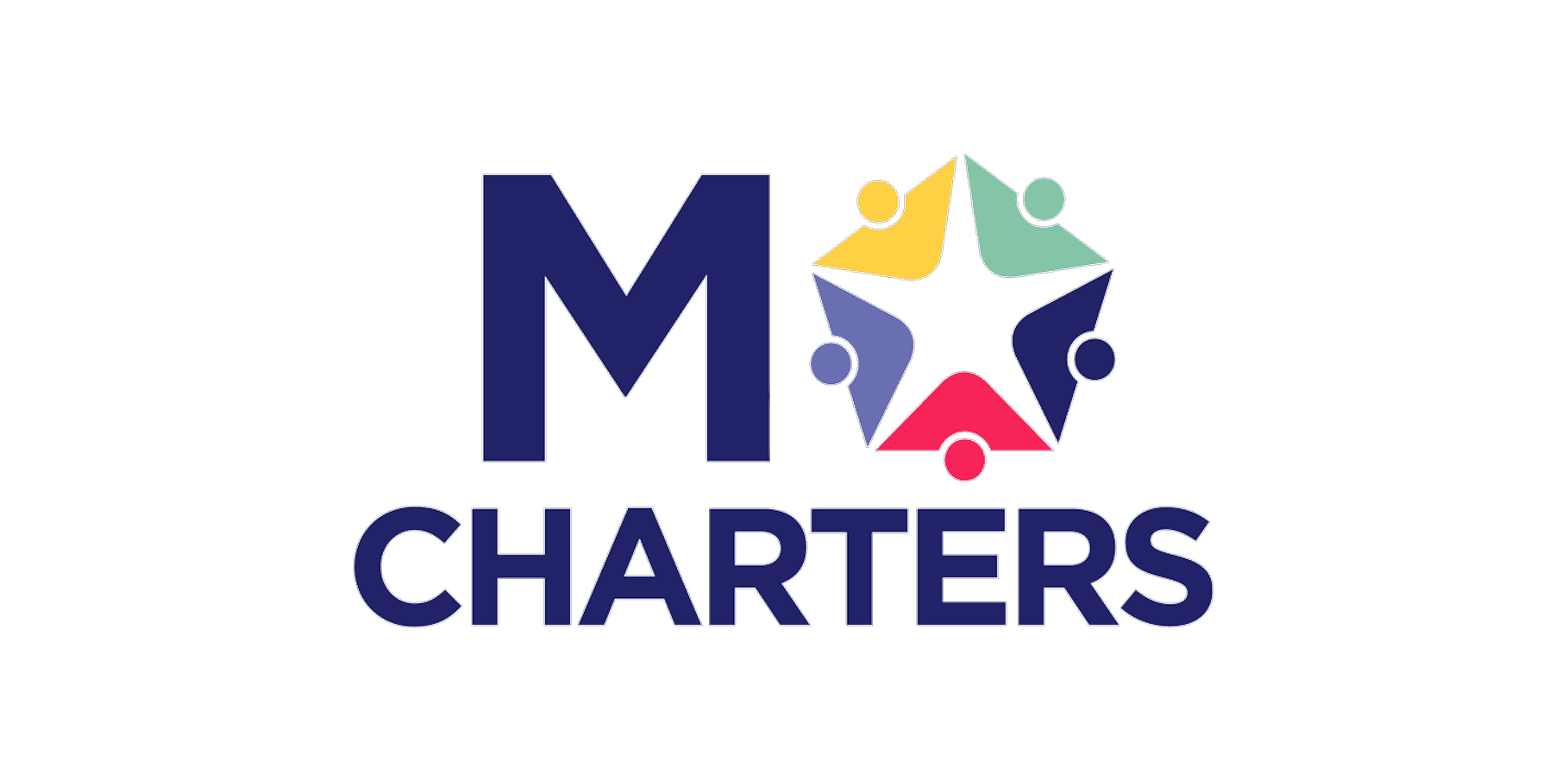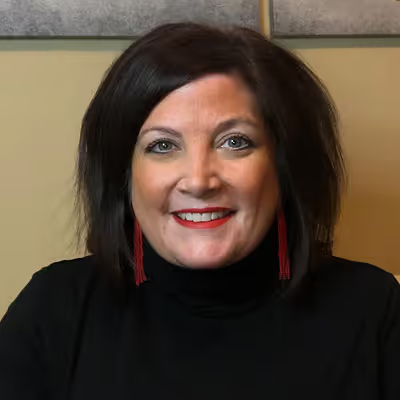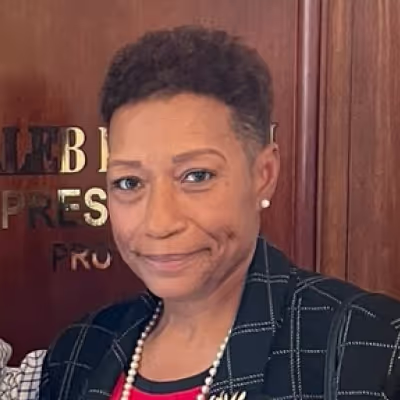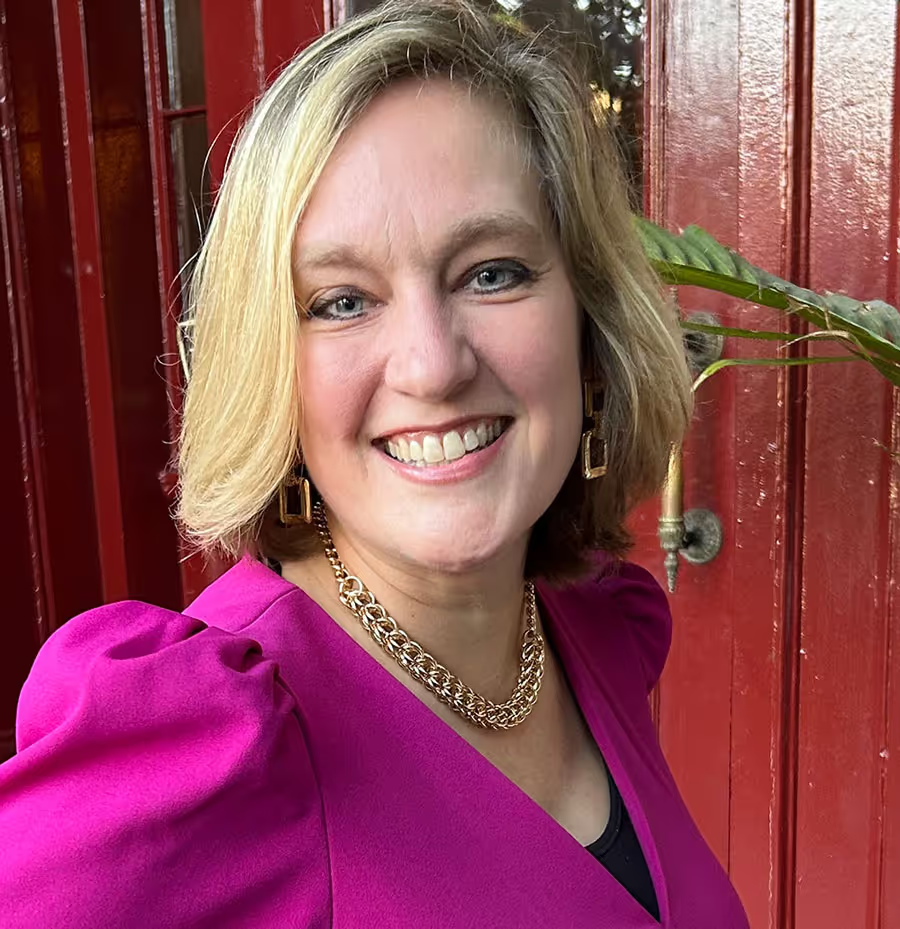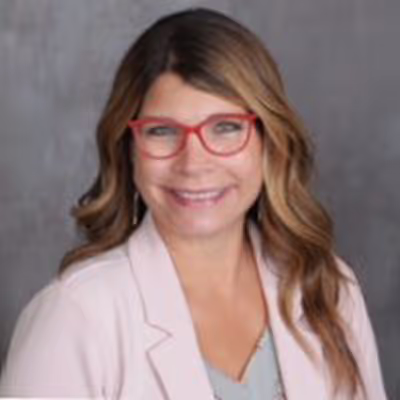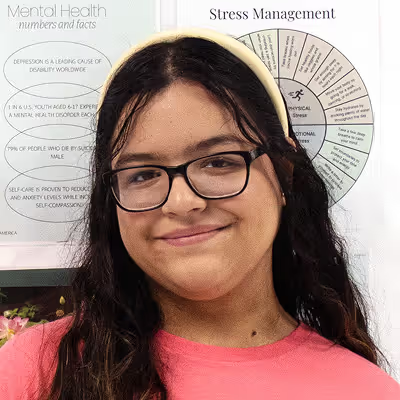Sean Stalling
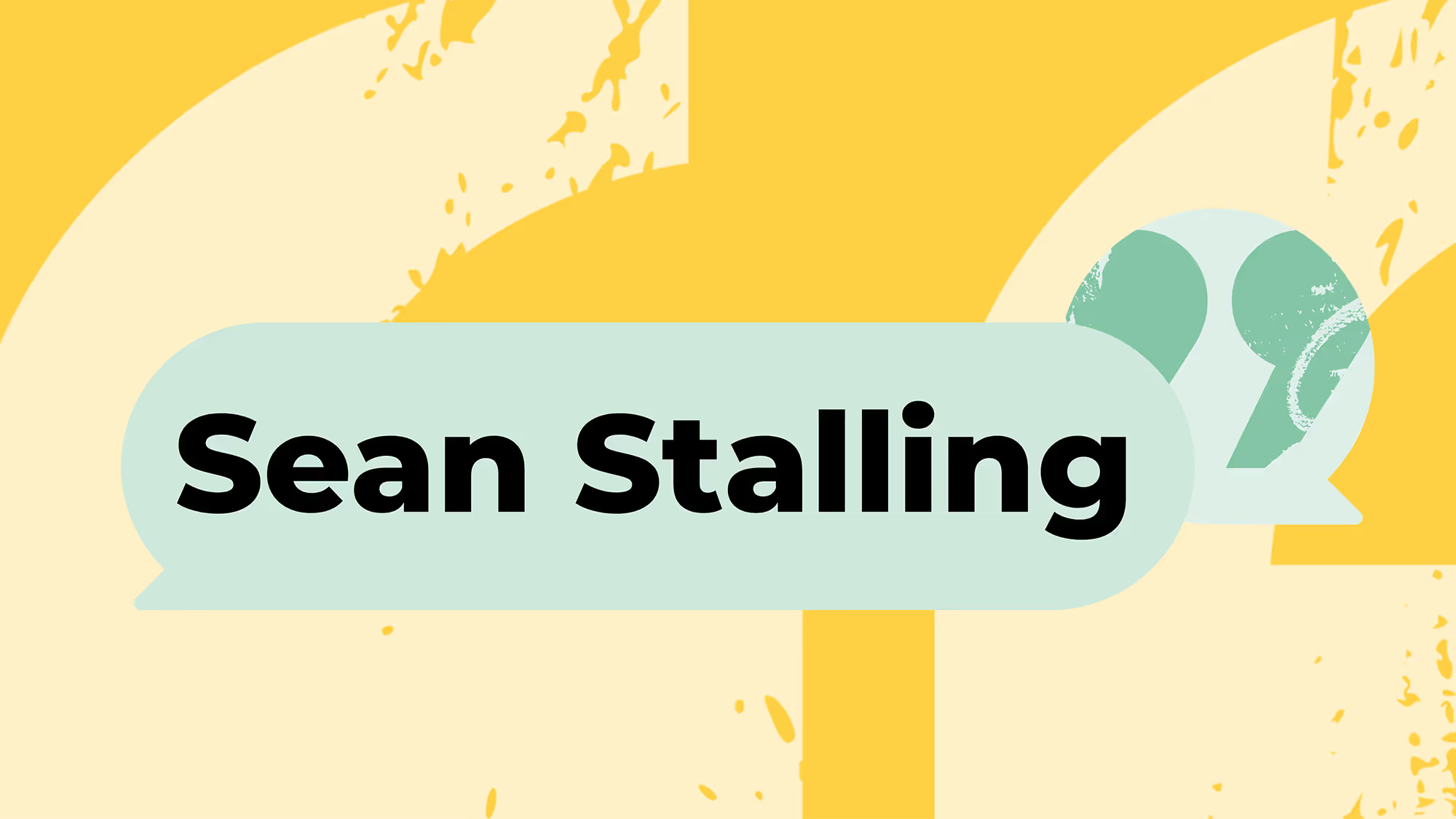


Reimagining School for Kansas City’s Students Looking for Another Chance
DeLaSalle’s Sean Stalling has forged extraordinary community partnerships to provide wraparound services and a real-world education for his students
Sean Stalling remembers presiding over commencement at DeLaSalle Education Center in Kansas City in 2021. Sixty students were graduating, but more than 700 family members and supporters had shown up for the celebration. Families were brimming with pride, but Stalling, who was named DeLaSalle’s executive director two years earlier, felt an unsettling ambivalence as he watched seniors walk across the stage to accept their diplomas.
“It was a reality check,” he says. “I wasn’t sure what was next for our students. Had we done enough to prepare them for the future?”
When Stalling arrived at DeLaSalle, the school had a reputation for being a last resort for children who had not thrived in other schools. “Kansas City was telling us, you’re the alternative school, where the ‘bad kids’ go,” Stalling says. Even his students bought into the narrative. “They would tell us, ‘I just want to graduate’—as if graduating high school was the stopping point. But graduating high school is just the start. There’s so much life ahead of you. I didn’t want that to be their story.”
Founded in 1971 as the first accredited alternative high school in Kansas City, DeLaSalle serves many kids who have struggled in traditional settings. Nearly half of DeLaSalle’s 200 students face profound challenges at home—domestic violence, substance abuse, homelessness, foster care, and/or teen pregnancy. Some are kids who dropped out but have come back to try again. Students range in age from 14 to 20 years old.
Graduating high school is just the start. There’s so much life ahead of you. I didn’t want that to be their story.
Under Stalling’s leadership, DeLaSalle has opened its arms further, creating Kintsugi Academy, a program that supports and educates children in grades 6-12 awaiting adjudication in the Jackson County Juvenile Detention Center. In other words, kids who need a second chance—or a third, or a fourth.
A former public school principal and district administrator in his native Chicago, Stalling found himself drawn to DeLaSalle’s commitment to students facing the most barriers. “As a Black man in education—having seen a lot of pain and hurt in communities that have not always been cared for—DeLaSalle intrigued me,” Stalling says. “Every kid has a unique story of why they are at DeLaSalle. These kids have been through a lot, and, at some point, some had adults give up on them. I wanted to make sure our kids had somebody who would truly champion them, be in rooms and speak highly of them, and do all they could to create opportunity for them. They deserve that.”
In the last five years, under Stalling’s leadership, DeLaSalle has graduated 100 percent of its students who started at the school in 9th-grade and steadily increased college enrollment. Among the graduating classes, total college scholarships rose from $20,000 in 2020 to more than $1 million this year. Nearly 40 percent of DeLaSalle’s juniors and seniors now earn dual-enrollment college credit with Metropolitan Community College, Penn Valley—a track that has boosted community college enrollment by 30 percent.
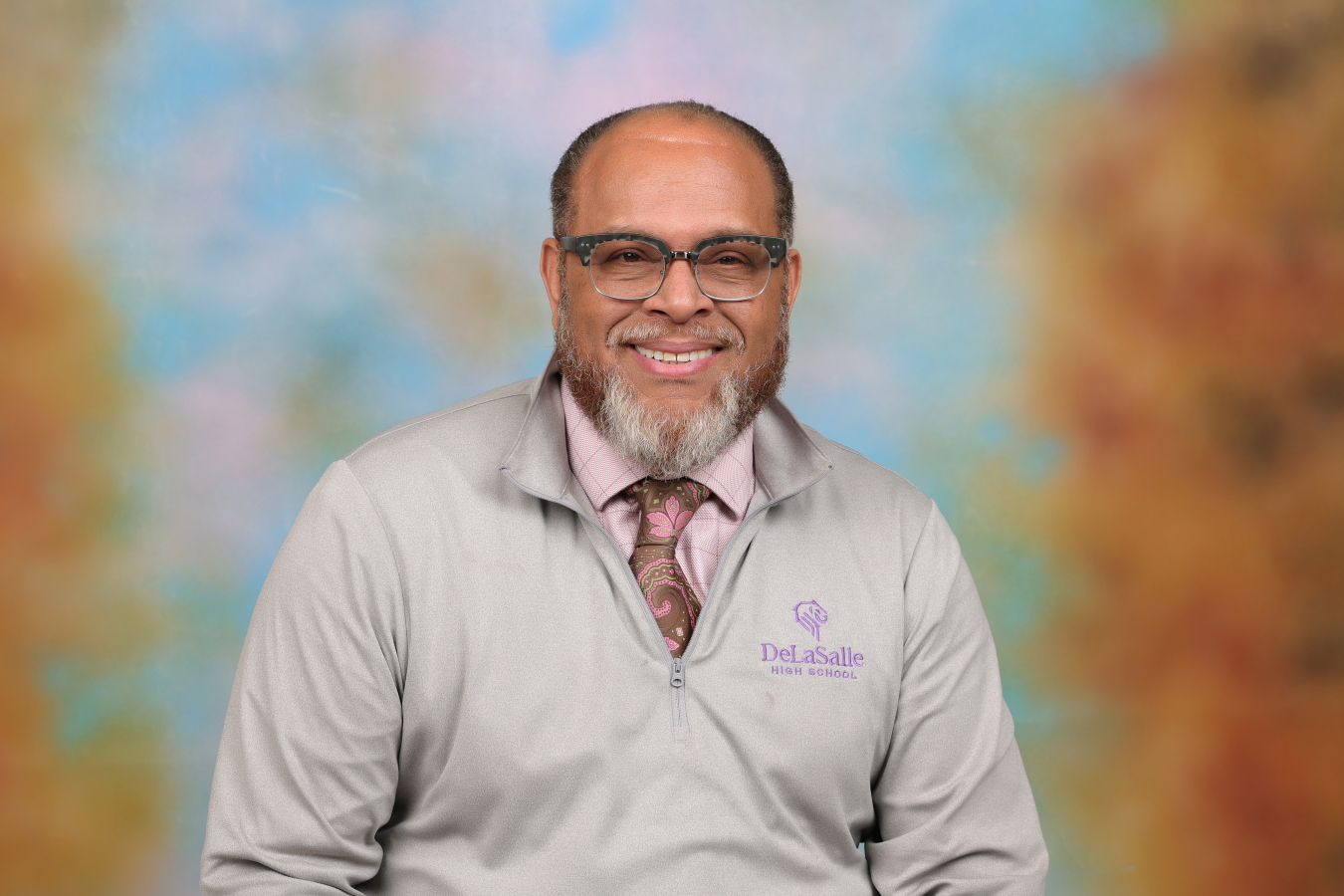





“At DeLaSalle, we don’t judge,” Stalling says. “When a kid comes to us, we’re not sitting in judgment and sentencing that kid to whatever we think will be their outcome in life. There’s always a seed of hope and possibility. We know our kids are brilliant. Are they struggling in some areas? Absolutely. But that simply means we have to be prepared to do more. We have to meet them where they are and show them what they can become.”
To Stalling, that means squarely acknowledging and addressing the adversity in his students’ lives. He has leaned heavily into community partnerships to provide wraparound services for his students, while emphasizing what he calls “future-ready plans” that prepare them for post-secondary success.
DeLaSalle contracts with a fellow public charter school to access a team of social workers, counselors, mental health specialists, and behavior interventionists who provide care and support for kids who have endured trauma. Operation Breakthrough, a local nonprofit, runs an in-house daycare for the children of teenage parents and coaches teen mothers and fathers on early childhood development and parenting skills. Stalling has brought in a range of community nonprofits to provide DeLaSalle students with hands-on experiences in culinary arts, graphic design, coding, urban agriculture, and a variety of in-demand skilled trades.
Stalling also created Block 37, an after-school program that places students in paid internships in a range of fields, including technology, communications and marketing, urban planning, and early childhood education. Community groups such as the Urban Neighborhood Initiative, YMCA, the Boys and Girls Club, ArtsTech, and BikeWalkKC mentor DeLaSalle students and teach them real-world skills.

We’re going to push you and hold you to an expectation. But what we’re not going to do: We’re not going to give up on you.
“Every kid doesn't have to go to college—we'd be foolish to try to force that on everybody. But every kid has to have a robust post-secondary plan,” Stalling says. “DeLaSalle fills the gap in Kansas City for that subset of children who need a second chance, who don't get that push and that intensity or the sense of hope for what could come next.”
Yet Stalling is clear about wanting to make DeLaSalle into a school of choice for any student in the district. It’s a vision he believes is made more possible because of DeLaSalle’s agility and autonomy as a public charter school. In addition to forging partnerships and providing extensive support services, Stalling says the freedom to hand-pick his team has been essential. Last year, he wrote a grant that allowed him to recruit top applicants from around the country, resulting in the hiring of eight new teachers who share his growth mindset for all students. “It’s a night and day difference,” he says. “There’s total alignment.”
Stalling values the ability of public charters to pivot quickly and be responsive to student needs in real time. “From my experience as a district leader in Chicago, many times the bureaucracy of the district prevented or limited you from doing things you thought were best for students,” he says. “The public charter space allows us to dream big and to think about what greatness could be.”
In the future that Stalling envisions, DeLaSalle is a beacon for every student, but especially those who feel abandoned by the systems that were supposed to lift them up. “If a kid is dropped out or thinking about dropping out, come to us. Let us get you back in the game,” Stalling says. “If you had a bad freshman year and you need a change of scenery. Come to us. We're going to push you and hold you to an expectation. But what we're not going to do: We're not going to give up on you. That is the key.”
